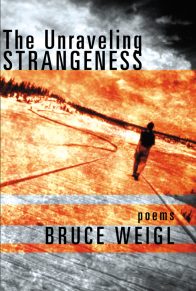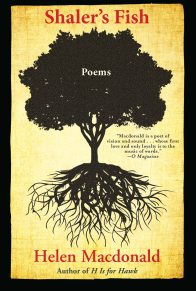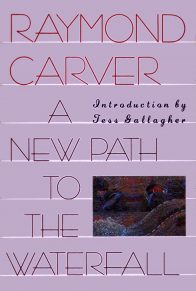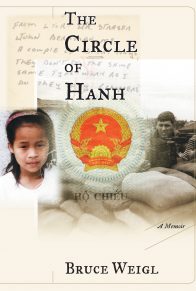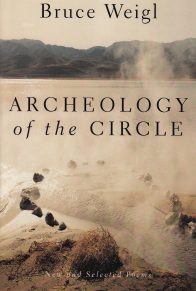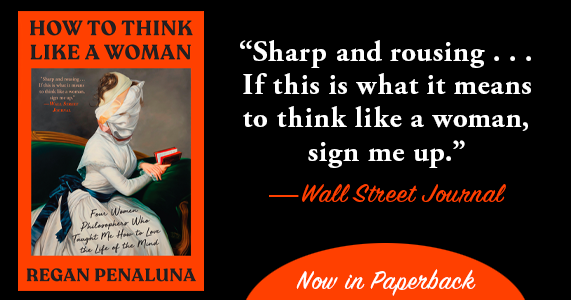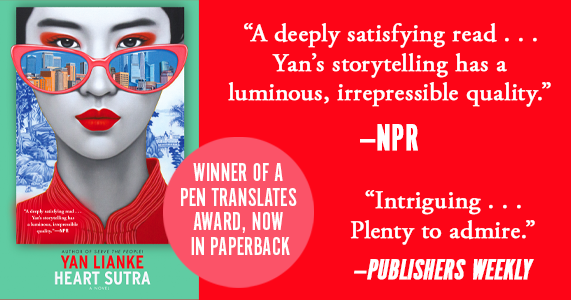I hit
the block of small hooches and saw her
twist out the black rope of her hair in the sun.
She did not look up at me,
not even when I called to her for my clothes.
She said I couldn’t have them,
they were wet …
Who would’ve thought the world stops
turning in the war, the tropical heat like hate
and your platoon moves out without you,
your wet clothes piled
at the feet of the girl at the laundry,
beautiful with her facts.
THE WAY OF TET
Year of the monkey, year of the human wave,
the people smuggled weapons in caskets through the city
in long processions undisturbed
and buried them in Saigon graveyards.
At the feet of their small Buddhas
weary bar girls burned incense
before the boy soldiers arrived
to buy them tea and touch them
where they pleased. Twenty years
and the feel of a girl’s body
so young there’s no hair
is like a dream, but living is a darker thing,
the iron burning bee who drains the honey,
and he remembers her
twisting in what evening
light broke into the small room in the shack
in the labyrinth of shacks
in the alley where the lost and corrupted kept house.
He undressed her for the last time,
each piece of clothing
a sacrifice she surrendered to the war
the way the world had become.
Tomorrow blood would run in every province.
Tomorrow people would rise from tunnels everywhere
and resurrect something ancient from inside them,
and the boy who came ten thousand miles to touch her
small self lies beside the girl whose words he can’t understand,
their song a veil between them.
She is a white bird in the bamboo, fluttering.
She is so small he imagines
he could hold all of her
in his hands and lift her to the black
sky beyond the illumination round’s white light
where she would fly from her life
and the wounds from the lovers would heal,
the broken skin grow back.
But he need only touch her, only
lift the blanket from her shoulders
and the automatic shape of love unfolds,
the flare’s light burning down on them,
lost in a wave that arrives
after a thousand years of grief
at their hearts.
TEMPLE NEAR QUANG TRI, NOT ON THE MAP
Dusk, the ivy thick with sparrows
squawking for more room
is all we hear; we see
birds move on the walls of the temple
shaping their calligraphy of wings.
Ivy is thick in the grottoes,
on the moon-watching platform
and ivy keeps the door from fully closing.
The point man leads us and we are
inside, lifting
the white washbowl, the smaller bowl
for rice, the stone lanterns
and carved stone heads that open
above the carved faces for incense.
But even the bamboo sleeping mat
rolled in the corner,
even the place of prayer, is clean.
And a small man
sits legs askew in the shadow
the farthest wall casts
halfway across the room.
He is bent over, his head
rests on the floor and he is speaking something
as though to us and not to us.
The CO wants to ignore him;
he locks and loads and fires a clip into the walls
which are not packed with rice this time
and tells us to move out.
But one of us moves towards the man,
curious about what he is saying.
We bend him to sit straight
and when he’s nearly peaked
at the top of his slow uncurling
his face becomes visible, his eyes
roll down to the charge
wired between his teeth and the floor.
The sparrows
burst off the walls into the jungle.
HIM, ON THE BICYCLE
“There was no light; there was no light at all …”
–Roethke
In a liftship near Hue,
the door gunner is in a trance.
He’s that driver who falls
asleep at the wheel
between Pittsburgh and Cleveland
staring at the Ho Chi Minh Trail.
Flares fall,
where the river leaps
I go stiff,
I have to think, tropical.
The door gunner sees movement,
the pilot makes small circles:
four men running, carrying rifles,
one man on a bicycle.
He pulls me out of the ship,
there’s firing far away.
I’m on the back of the bike
holding his hips.
It’s hard pumping for two,
I hop off and push the bike.
I’m brushing past trees,
the man on the bike stops pumping,
lifts his feet,
we don’t waste a stroke.
His hat flies off,
I catch it behind my back,
put it on, I want to live forever!
Like a blaze
streaming down the trail.
SOME THOUGHTS ON THE AMBASSADOR: BONG SON, 1967
Bunker the ambassador.
Does Mr. Bunker have a bunker?
He must have a bunker
with chrome faucets and a sauna
and a mama san to ease his mind.
They must call it
Mr. Bunker’s bunker.
He must be shaking his head.
HAND TO HAND
We sit in a circle around First Sergeant. Who wants to try me he says and my hand goes up and before I know what I’m doing I’m doing it. He slams me into the ground like someone made of water–my back, my lungs, some clouds. I take his hand and he spins me and I’m down again. I can feel the day lost, the night I’m in my rack, hurt, unable to sleep, he comes like so much man, leads me past the fireguard, past fifty sleeping soldiers, pushes his bunk aside, pulls me and we dance and I learn hand to hand brothers, learn the places on the body that betray” . Close my eyes. Open them. Fall violently upward.
SURROUNDING BLUES ON THE WAY DOWN
I was barely in country.
We slipped under the rain-black clouds
opening around us like orchids.
He’d come to take me into the jungle
so I felt the loneliness
though I did not yet hate the beautiful war.
Eighteen years old and a man
was telling me how to stay alive
in the tropics he said would rot me–
brothers of the heart he said and smiled
until we came upon a mama san
bent over from her stuffed sack of flowers.
We flew past her but he hit the brakes hard,
he spun the tires backwards in the mud.
He did not hate the war either
but other reasons made him cry out to her
so she stopped,
she smiled her beetle-black teeth at us,
in the air she raised her arms.
I have no excuse for myself.
I sat in that man’s jeep in the rain
and watched him slam her to her knees,
the plastic butt of his M16
crashing down on her.
I was barely in country, the clouds
hung like huge flowers, black
like her teeth.
SONG FOR THE LOST PRIVATE
The night we were to meet in the hotel
in the forbidden Cholon district
you didn’t show
so I drank myself into a filthy room with a bar girl
who had terrible scars
she ran her fingers over
as we bartered for the night.
Drunk, I couldn’t do anything, angry
I threw the mattress to the street
and stood naked on the balcony
cursing your name to the night.
She thought I was crazy
and tried to give my money back.
I don’t know how to say I tried again.
I saw myself in the mirror and couldn’t move.
In her fist she crushed the paper money,
she curled in sleep away from me
so I felt cruel, cold, and small arms fire
cracked in the marketplace below.
I thought I heard you call back my name then
but white flares lit the sky
casting empty streets in clean light
and the firing stopped.
I couldn’t sleep so I touched her
small shoulders, traced the curve on her spine,
traced the scars, the miles
we were all from home.
SHORT
There’s a bar girl on Trung Hung Do who has half a ten-piaster note I tore in my drunken relief to be leaving the country. She has half and I have half, if I can find it. If I lost it, it wasn’t on purpose, it’s all I have to remember her. She has a wet sheet, a PX fan, PX radio, and half a ten-piaster note, as if she cared to remember me. She thought it was stupid to tear money and when I handed it to her she turned to another soldier, new in country, who needed a girl. I hope I burn in hell.
THE LAST LIE
Some guy in the miserable convoy
raised up in the back of our open truck
and threw a can of C rations at a child
who called into the rumble for food.
He didn’t toss the can, he wound up and hung it
on the child’s forehead and she was stunned
backwards into the dust of our trucks.
Across the sudden angle of the road’s curving
I could still see her when she rose,
waving one hand across her swollen, bleeding head,
wildly swinging her other hand
at the children who mobbed her,
who tried to take her food.
I grit my teeth to myself to remember that girl
smiling as she fought off her brothers and sisters.
She laughed
as if she thought it were a joke
and the guy with me laughed
and fingered the edge of another can
like it was the seam of a baseball
until his rage ripped
again into the faces of children
who called to us for food.
MONKEY
1
I am you are he she it is
we are you are they are.
I am you are he she it is
we are you are they are.
When they ask for your number
pretend to be breathing.
Forget the stinking jungle,
force your fingers between the lines.
Learn to get out of the dew.
The snakes are thirsty.
Bladders, water, boil it, drink it.
Get out of your clothes.
You can’t move in your green clothes.
Your O.D. in color issues clothes.
Get out the plates and those who ate,
those who spent the night.
Those small Vietnamese soldiers.
They love to hold your hand.
Back away from their dark cheeks.
Small Vietnamese soldiers.
They love to love you.
I have no idea how it happened.
I remember nothing but light.
2
I don’t remember the hard
swallow of the lover.
I don’t remember the burial of ears.
I don’t remember
the time of the explosion.
This is the place where curses are manufactured,
delivered like white tablets.
The survivor is spilling his bedpan.
He slips a curse into your pocket,
you’re finally satisfied.
I don’t remember the heat
in the hands,
the heat around the neck.
Good times bad times sleep
get up work. Sleep get up
good times bad times.
Work eat sleep good bad work times.
I like a certain cartoon of wounds.
The water which refused to dry.
I like a little unaccustomed mercy.
Pulling the trigger is all we have.
I hear a child.
3
I dropped to the bottom of a well.
I have a knife.
I cut someone with it.
Oh, I have the petrified eyebrows
of my Vietnam monkey.
My monkey from Vietnam.
My monkey.
Put your hand here.
It makes no sense.
I beat the monkey.
I didn’t know him.
He was bloody.
He lowered his intestines
to my shoes. My shoes
spit-shined the moment
I learned to tie the bow.
I’m not on speaking terms
with anyone. In the wrong climate
a person can spoil,
the way a pair of boots slows you” .
I don’t know when I’m sleeping.
I don’t know if what I’m saying
is anything at all.
I’ll lie on my monkey bones.
4
I’m tired of the rice
falling in slow motion
like eggs from the smallest animal.
I’m twenty-five years old,
quiet, tired of the same mistakes,
the same greed, the same past.
The same past with its bleat
and pound of the dead,
with its hand grenade
tossed into a hooch on a dull Sunday
because when a man dies like that
his eyes sparkle,
his nose fills with witless nuance
because a farmer in Bong Son
has dead cows lolling
in a field of claymores
because the VC tie hooks to their comrades
because a spot of blood is a number
because a woman is lifting
her dress across the big pond.
If we’re soldiers we should smoke them
if we have them. Someone’s bound
to point us in the right direction
sooner or later.
I’m tired and I’m glad you asked.
5
There is a hill.
Men run top hill.
Men take hill.
Give hill to man.
Me and my monkey
and me and my monkey
my Vietnamese monkey
my little brown monkey
came with me
to Guam and Hawaii
in Ohio he saw
all my people he
jumped on my daddy
he slipped into mother
he baptized my sister
he’s my little brown monkey
he came here from heaven
to give me his spirit
imagine my monkey my beautiful
monkey he saved me lifted
me above the punji
sticks above the mines
above the ground burning
above the dead above
the living above the
wounded dying the wounded
dying.





